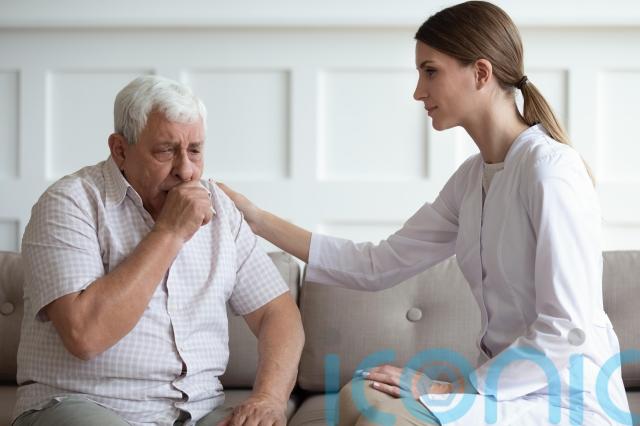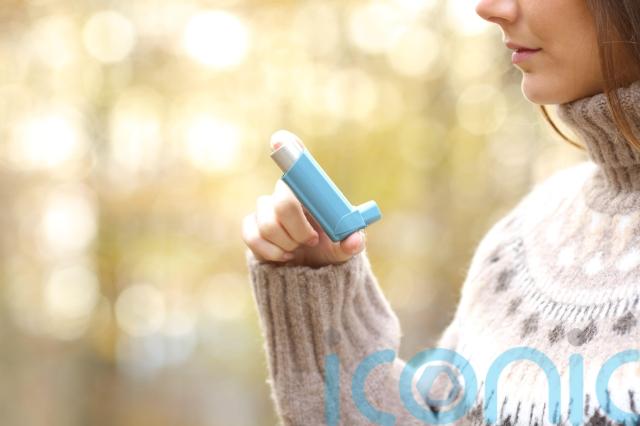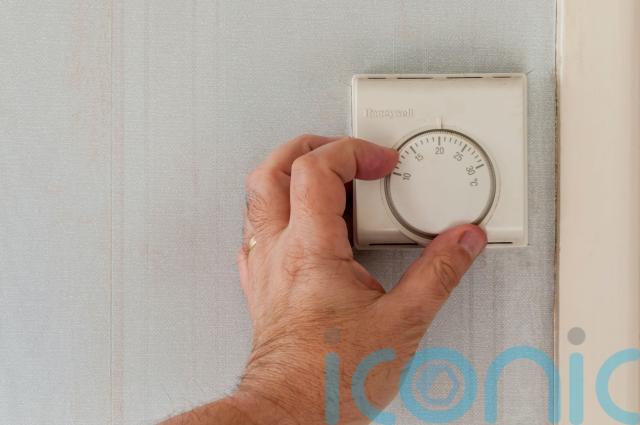
As the chilly weather begins to take hold, you might find yourself feeling increasingly wheezy or short of breath.
We spoke to Dr Andy Whittamore, GP and clinical lead at Asthma + Lung UK, who has explained why falling temperatures can affect our breathing this time of year and has also shared some practical tips on how to protect your lungs as we enter the colder months.
How does the cold air and changes in temperature this time of year affect our lungs and breathing?

“That cold air makes our airways in our lungs get a little bit more irritable and narrow,” says Whittamore. “People also tend to get more mucus in the winter as well.”
While this doesn’t create major problems for most of us, the GP explains that it can cause issues for vulnerable people such as children or those with underlying lung conditions like COPD (chronic obstructive pulmonary disease) or asthma.
“I work as a GP and we see a lot of people with lung conditions coming forward this time of year because the cold weather and the increase in viruses are setting off their breathing, making them have chest infections and making them feel unwell,” says Whittamore. “It is also a time where people come to the GP and didn’t realise that they had these conditions. They’re often getting these symptoms for the first time because a virus or the cold weather or something else has set off their lungs.
“The other group that we regularly see are children. Because their airways are narrower, they’re more susceptible to a little bit of narrowing from the cold air and the viruses often make them feel really unwell.”
Mould can also be a trigger.
“The cold weather causes trees and bushes and things to die off, and all those rotten leaves can put mould in the air which can irritate people’s lungs,” explains Whittamore.

What red flags should we look out for?
“I think anybody who’s feeling more breathless than normal should definitely be contacting their GP or the 111 service to try and get some advice and support,” advises Whittamore. “Anybody who is coughing so much that their mucus has turned green or has blood in it, or has a fever should also definitely be seeking urgent advice.
“It might be a simple virus or it might be turning into a pneumonia and if we don’t catch it quickly, there’s more chance that you could end up ill or in hospital.”
Here are Whittamore’s top tips on how to look after your lungs as the chilly weather ramps up…
Take your medication

“If you’ve got asthma or COPD, take your preventer medication regularly and make sure you’re taking it in the right way,” advises Whittamore.
“If you’ve got a reliever inhaler, make sure that you’re also carrying that around with you. Taking medication as prescribed is really important to stop your breathing from getting worse.”
Breathe through your nose
“The nose is very good at warming up the air to stop the lungs becoming irritated by the cold weather,” explains Whittamore.
Cover your face

“Wear a loose scarf or something just over your mouth and nose to stop the cold air from irritating the lungs,” suggests Whittamore.
Dress warmly
“Take the cold weather seriously and make sure you are wrapping up warm,” advises Whittamore.
Keep the damp out
“Try to open windows when there’s clothes drying or when you’re cooking with lots of steam to prevent damp from getting into the house,” recommends Whittamore.
Keep your house warm

“Make sure you’re warming your house adequately, ideally between 18 and 21 degrees,” recommends Whittamore.
Stay active
“Doing some exercise on a regular basis will help keep your lungs, heart and muscles more active, which will keep you fit and more able to fight off the effects of winter,” says Whittamore.
“However, if simple exercise like walking is making you feel more breathless than normal and you’re not recovering from it quickly, or if it’s causing chest pains, then it is time to seek medical advice.”
Keep up to date on your vaccinations

“People with poor immune systems are more at risk of getting problems with their lungs over the winter, and that’s why the vaccination campaigns are so important,” says Whittamore. “Your GP surgery should be able to advise you about which vaccinations you’re entitled to.”
Stop smoking
“Smoking increases the risk of developing COPD and pneumonia, of getting other chest infections and picking up viruses,” says Whittamore. “So, if you are a smoker, try and get help from the NHS before the winter.”
Ask for a review
“Within the NHS, everybody with a long-term condition should be invited for an annual review with their GP to talk about their medication and action plan,” says Whittamore. “If you haven’t been diagnosed with a condition but are struggling with your breathing, then ask for a review as well.
“It can be a good opportunity to try and get on top of your breathing before the winter to make sure your lungs are in the best state they can be.”
Visit the Asthma + Lung UK’s website
“There’s so much information on there, including action plans and management plans and lots of useful tips and support,” highlights Whittamore. “You can also call our helpline on 0300 222 5800 (Monday to Friday, 9am to 5pm) where our expert respiratory nurses are there to help give you the support that you need.”
Subscribe or register today to discover more from DonegalLive.ie
Buy the e-paper of the Donegal Democrat, Donegal People's Press, Donegal Post and Inish Times here for instant access to Donegal's premier news titles.
Keep up with the latest news from Donegal with our daily newsletter featuring the most important stories of the day delivered to your inbox every evening at 5pm.